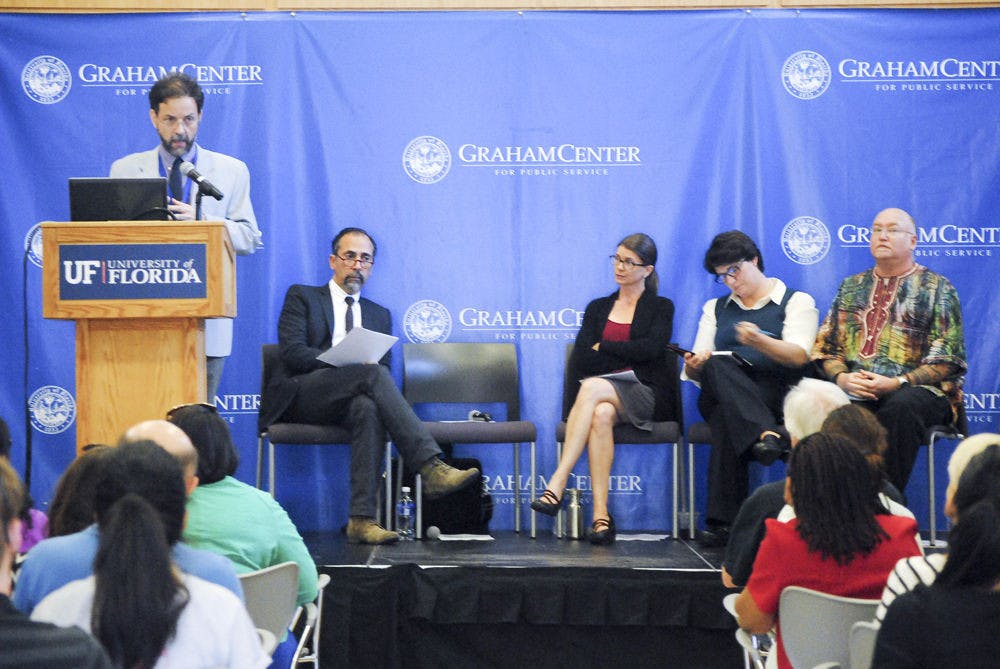As the Ebola epidemic continues to cause concern, UF scholars gathered Wednesday to discuss the issue.
About 200 students, faculty and community members filled the Ocora in Pugh Hall to listen to the evening panel.
The UF panelists included Dr. Paul Psychas, assistant professor of community health and family medicine; Sharon Abramowitz, assistant professor of anthropology; Timothy Nevin, visiting professor in the Department of History; and Jill Sonke, director of the Center for Arts in Medicine.
UF’s dean of international studies, Leonardo Villalon, moderated the discussion.
The U.S. medical system has the capacity to handle the disease, he said at the event.
“These kind of things test our system,” Villalon said. “There have already been critiques of the situation in Dallas.”
The panelists addressed issues ranging from Ebola’s impact on West Africa to how the countries medical systems are ill-equipped to handle the outbreak.
Villalon also stressed the importance of awareness and education about the disease.
“I think it’s the most important thing we can do,” he said. “No one in Gainesville is likely to get it.”
Alysha Cooper, a 19-year-old UF biology junior, attended the event as a part of UF’s Ebola research group.
“It’s important to have information on the CDC, Atlanta and Texas, but it’s easy for us to see Africa as a blob far from us,” she said. “Education is key.”
Abramowitz, who organized the event, is leading the Ebola research group at UF. Abramowitz said students should take action and help Ebola affected countries.
“I would encourage people and student organizations to start doing more fundraising,” she said.
Paul Psychas was the first presenter of the evening.
He said he worked on the Ebola outbreak in Central Africa in 2002.
The U.S. Centers for Disease Control and Prevention predicts that there will be between 1.2 and 1.4 million cases of Ebola in West Africa by January 2015, Psychas said in his presentation.
“You can watch a whole string of headlines and never get the bigger picture,” Psychas said.
UF stakeholders met to discuss strategies for handling the virus on campus Tuesday, Psychas said.
Medical staff are running drills at the UF Health Shands Hospital to practice isolating and treating an Ebola patient.
Joscelyn Essegbey, a Gainesville resident, attended the discussion to hear about the differences in treatment for the disease.
“The disease has no borders,” Essegbey said. “We become aware of what we can bring in and take out.”
[A version of this story ran on page 1 on 10/9/2014]
Paul Psychas, a UF community health and family medicine associate professor, speaks at the West African Ebola Epidemic discussion in Pugh Hall on Wednesday evening.






